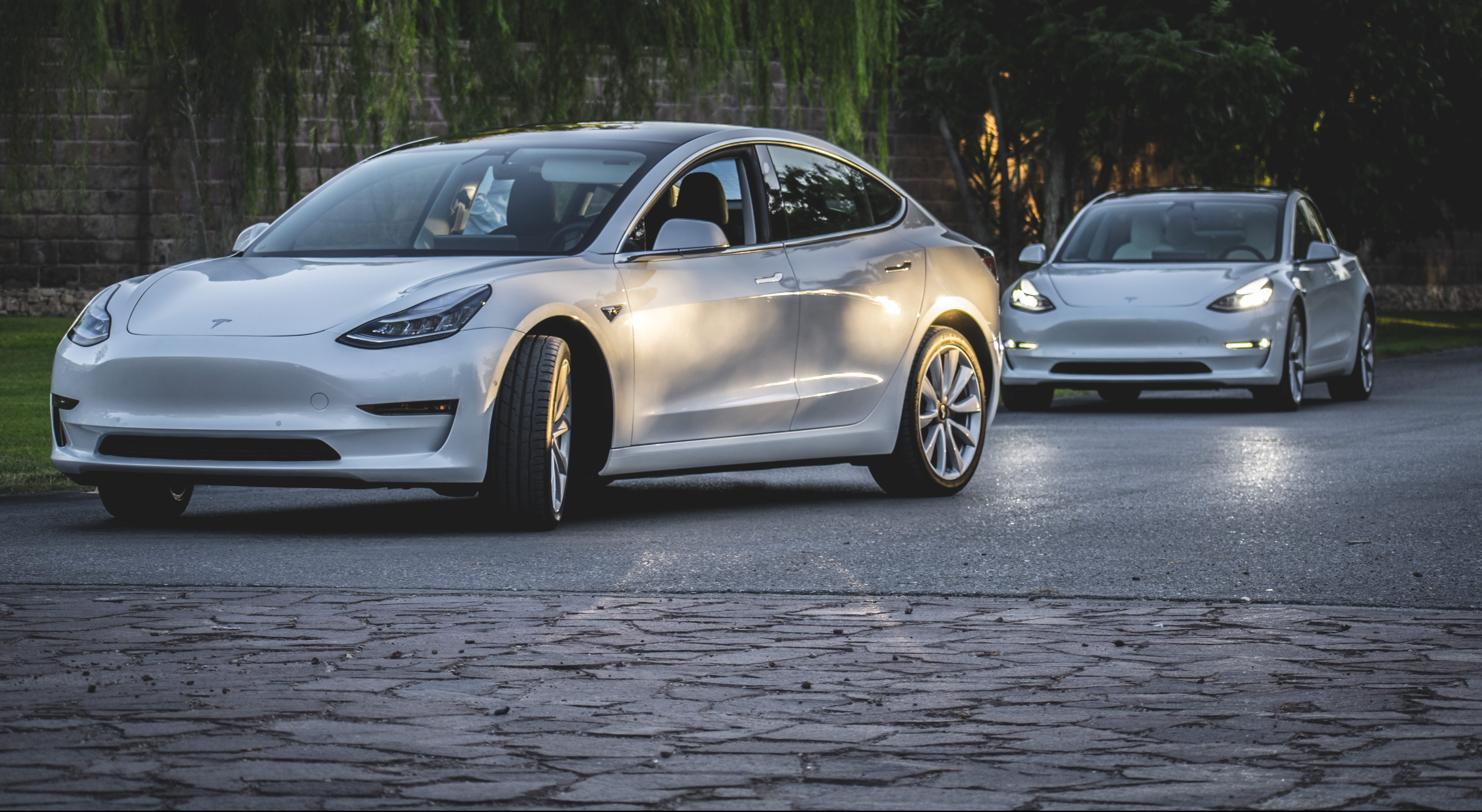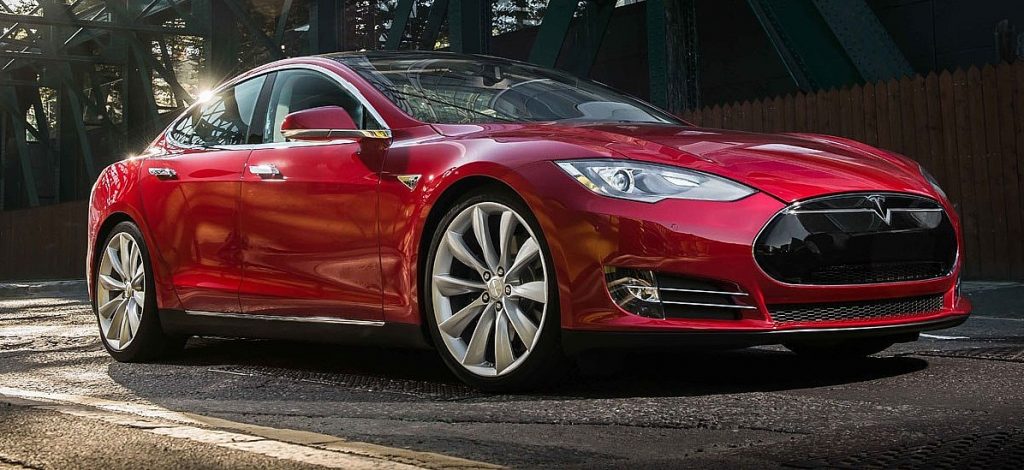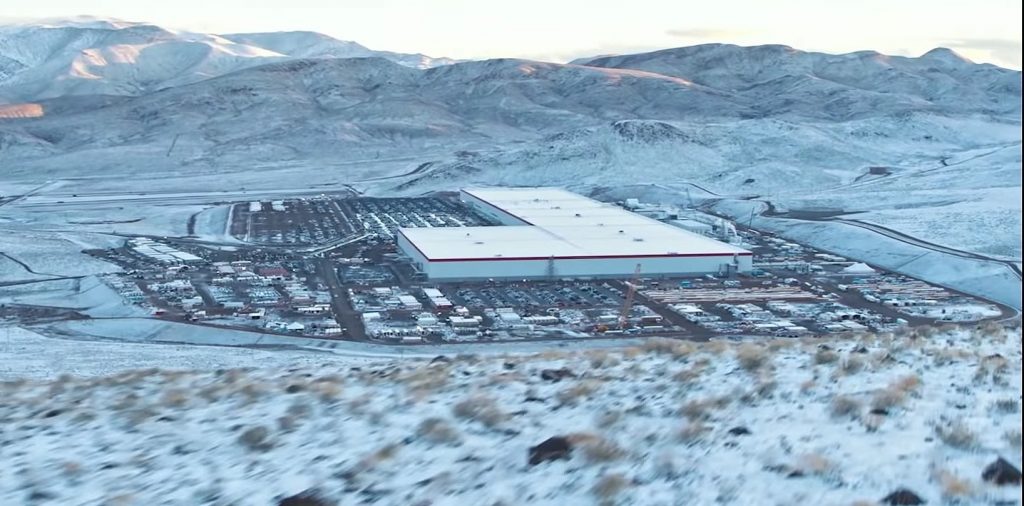

Investor's Corner
Tesla celebrates its 10-year IPO anniversary: A look back at TSLA’s storied decade
Tesla (NASDAQ:TSLA) recently celebrated its 10th year anniversary at the stock market. Since the company held its initial public offering, TSLA stock has been on a massive bull run, earning its investors about 45% a year on average. That’s quite impressive, especially for a company that entered one of the most competitive industries in the market using vehicles that were once thought of as nothing but glorified golf carts.
Tesla held its IPO on June 29, 2010. During the time, Tesla was in need of funding, and its entrance into the stock market provided the company with a much needed boost to get its rhythm going. Tesla’s IPO was priced at $17, which valued the company at about $1.7 billion. Since then, TSLA stock has aggressively risen, with the company breaching the $1,000 per share barrier this month.
Overall, steep swings due to its trademark volatility aside, Tesla stock has earned investors 5,677% over the past decade. That’s an average of about 45% per year, quite an achievement for a company that is ranked among the world’s automakers.
Today, Tesla is valued only second to Toyota in the car industry. Of course, Toyota far outsells the much smaller Tesla, with the Japanese auto giant selling about 9 million vehicles each year with sales of about $234 billion. Tesla, on the other hand, sold over 360,000 vehicles last year with about $26 billion in sales. But these numbers alone miss the big picture.
A look at Tesla’s pace of growth over the decade shows a company that is expanding fast. Back in 2010, Tesla sales came in at less than $120 million and it was built on the back of the original Roadster, a small sports car that was priced beyond $100,000 per unit. Over the past ten years, these sales numbers are up by a factor of more than 200, as per Barron’s. Toyota, on the other round, has grown too, but nowhere near as much, with the Japanese automaker’s sales coming in at about $200 billion in 2010.

This is not to say that Tesla has not met challenges over the past decade, of course. Electric cars are a hard sell to begin with, and the negative sentiments surrounding the vehicles themselves were prominent, from the long tailpipe myth to range anxiety. Tesla was able to address these largely with the Model S, its first vehicle that was designed from the ground up. The Model S was well-reviewed, at one point even being dubbed as the 2013 MotorTrend Car of the Year.
If there is something that Tesla has shown, it would be foresight. Even if it only had the Model S, the company already began setting up a Supercharger Network that would allow its vehicles to charge their batteries quickly and conveniently. This allowed Tesla owners to conduct long trips without much issue, something that was rarely possible with previous electric cars.

The company also established a Gigafactory in Nevada in anticipation of the arrival of the Model 3, its first mass market car. The idea of a mammoth factory that only produces electric car batteries and powertrains seemed like a questionable idea then, and it was met by critics’ vocal opposition, but it ultimately paid off as the Model 3 hit its stride in the United States and in other countries.
Tesla today is at a very different place compared to where it was when it debuted in the stock market. Today, Tesla stands as the gold standard of EVs, and its always-connected, tech-driven vehicles are now being emulated by the world’s largest automakers such as Volkswagen. Elon Musk has always stated that Tesla’s goal is to accelerate the advent of sustainable energy, and so far, the company appears to be doing just that. Ultimately, Tesla has done the near impossible: it was able to disrupt the auto market.
Tesla shares are up more than 130% year to date as of the company’s 10-year IPO anniversary yesterday, surpassing comparable returns of the S&P 500 and the Dow Jones Industrial Average.
As of writing, Tesla stock is up 1.43% at $1,023.77 per share.
Disclosure: I have no ownership in shares of TSLA and have no plans to initiate any positions within 72 hours.
Elon Musk
Tesla analyst issues stern warning to investors: forget Trump-Musk feud

A Tesla analyst today said that investors should not lose sight of what is truly important in the grand scheme of being a shareholder, and that any near-term drama between CEO Elon Musk and U.S. President Donald Trump should not outshine the progress made by the company.
Gene Munster of Deepwater Management said that Tesla’s progress in autonomy is a much larger influence and a significantly bigger part of the company’s story than any disagreement between political policies.
Munster appeared on CNBC‘s “Closing Bell” yesterday to reiterate this point:
“One thing that is critical for Tesla investors to remember is that what’s going on with the business, with autonomy, the progress that they’re making, albeit early, is much bigger than any feud that is going to happen week-to-week between the President and Elon. So, I understand the reaction, but ultimately, I think that cooler heads will prevail. If they don’t, autonomy is still coming, one way or the other.”
BREAKING: GENE MUNSTER SAYS — $TSLA AUTONOMY IS “MUCH BIGGER” THAN ANY FEUD 👀
He says robotaxis are coming regardless ! pic.twitter.com/ytpPcwUTFy
— TheSonOfWalkley (@TheSonOfWalkley) July 2, 2025
This is a point that other analysts like Dan Ives of Wedbush and Cathie Wood of ARK Invest also made yesterday.
On two occasions over the past month, Musk and President Trump have gotten involved in a very public disagreement over the “Big Beautiful Bill,” which officially passed through the Senate yesterday and is making its way to the House of Representatives.
Musk is upset with the spending in the bill, while President Trump continues to reiterate that the Tesla CEO is only frustrated with the removal of an “EV mandate,” which does not exist federally, nor is it something Musk has expressed any frustration with.
In fact, Musk has pushed back against keeping federal subsidies for EVs, as long as gas and oil subsidies are also removed.
Nevertheless, Ives and Wood both said yesterday that they believe the political hardship between Musk and President Trump will pass because both realize the world is a better place with them on the same team.
Munster’s perspective is that, even though Musk’s feud with President Trump could apply near-term pressure to the stock, the company’s progress in autonomy is an indication that, in the long term, Tesla is set up to succeed.
Tesla launched its Robotaxi platform in Austin on June 22 and is expanding access to more members of the public. Austin residents are now reporting that they have been invited to join the program.
Elon Musk
Tesla surges following better-than-expected delivery report
Tesla saw some positive momentum during trading hours as it reported its deliveries for Q2.

Tesla (NASDAQ: TSLA) surged over four percent on Wednesday morning after the company reported better-than-expected deliveries. It was nearly right on consensus estimations, as Wall Street predicted the company would deliver 385,000 cars in Q2.
Tesla reported that it delivered 384,122 vehicles in Q2. Many, including those inside the Tesla community, were anticipating deliveries in the 340,000 to 360,000 range, while Wall Street seemed to get it just right.
Tesla delivers 384,000 vehicles in Q2 2025, deploys 9.6 GWh in energy storage
Despite Tesla meeting consensus estimations, there were real concerns about what the company would report for Q2.
There were reportedly brief pauses in production at Gigafactory Texas during the quarter and the ramp of the new Model Y configuration across the globe were expected to provide headwinds for the EV maker during the quarter.
At noon on the East Coast, Tesla shares were up about 4.5 percent.
It is expected that Tesla will likely equal the number of deliveries it completed in both of the past two years.
It has hovered at the 1.8 million mark since 2023, and it seems it is right on pace to match that once again. Early last year, Tesla said that annual growth would be “notably lower” than expected due to its development of a new vehicle platform, which will enable more affordable models to be offered to the public.
These cars are expected to be unveiled at some point this year, as Tesla said they were “on track” to be produced in the first half of the year. Tesla has yet to unveil these vehicle designs to the public.
Dan Ives of Wedbush said in a note to investors this morning that the company’s rebound in China in June reflects good things to come, especially given the Model Y and its ramp across the world.
He also said that Musk’s commitment to the company and return from politics played a major role in the company’s performance in Q2:
“If Musk continues to lead and remain in the driver’s seat, we believe Tesla is on a path to an accelerated growth path over the coming years with deliveries expected to ramp in the back-half of 2025 following the Model Y refresh cycle.”
Ives maintained his $500 price target and the ‘Outperform’ rating he held on the stock:
“Tesla’s future is in many ways the brightest it’s ever been in our view given autonomous, FSD, robotics, and many other technology innovations now on the horizon with 90% of the valuation being driven by autonomous and robotics over the coming years but Musk needs to focus on driving Tesla and not putting his political views first. We maintain our OUTPERFORM and $500 PT.”
Moving forward, investors will look to see some gradual growth over the next few quarters. At worst, Tesla should look to match 2023 and 2024 full-year delivery figures, which could be beaten if the automaker can offer those affordable models by the end of the year.
Investor's Corner
Tesla delivers 384,000 vehicles in Q2 2025, deploys 9.6 GWh in energy storage
The quarter’s 9.6 GWh energy storage deployment marks one of Tesla’s highest to date.

Tesla (NASDAQ: TSLA) has released its Q2 2025 vehicle delivery and production report. As per the report, the company delivered over 384,000 vehicles in the second quarter of 2025, while deploying 9.6 GWh in energy storage. Vehicle production also reached 410,244 units for the quarter.
Model 3/Y dominates output, ahead of earnings call
Of the 410,244 vehicles produced during the quarter, 396,835 were Model 3 and Model Y units, while 13,409 were attributed to Tesla’s other models, which includes the Cybertruck and Model S/X variants. Deliveries followed a similar pattern, with 373,728 Model 3/Ys delivered and 10,394 from other models, totaling 384,122.
The quarter’s 9.6 GWh energy storage deployment marks one of Tesla’s highest to date, signaling continued strength in the Megapack and Powerwall segments.

Year-on-year deliveries edge down, but energy shows resilience
Tesla will share its full Q2 2025 earnings results after the market closes on Wednesday, July 23, 2025, with a live earnings call scheduled for 4:30 p.m. CT / 5:30 p.m. ET. The company will publish its quarterly update at ir.tesla.com, followed by a Q&A webcast featuring company leadership. Executives such as CEO Elon Musk are expected to be in attendance.
Tesla investors are expected to inquire about several of the company’s ongoing projects in the upcoming Q2 2025 earnings call. Expected topics include the new Model Y ramp across the United States, China, and Germany, as well as the ramp of FSD in territories outside the US and China. Questions about the company’s Robotaxi business, as well as the long-referenced but yet to be announced affordable models are also expected.
-

 Elon Musk4 days ago
Elon Musk4 days agoTesla investors will be shocked by Jim Cramer’s latest assessment
-

 News1 week ago
News1 week agoTesla Robotaxi’s biggest challenge seems to be this one thing
-

 Elon Musk2 weeks ago
Elon Musk2 weeks agoFirst Look at Tesla’s Robotaxi App: features, design, and more
-

 News2 weeks ago
News2 weeks agoSpaceX and Elon Musk share insights on Starship Ship 36’s RUD
-

 News2 weeks ago
News2 weeks agoWatch Tesla’s first driverless public Robotaxi rides in Texas
-

 News1 week ago
News1 week agoWatch the first true Tesla Robotaxi intervention by safety monitor
-

 News2 weeks ago
News2 weeks agoTesla has started rolling out initial round of Robotaxi invites
-

 Elon Musk2 weeks ago
Elon Musk2 weeks agoTesla to launch in India in July with vehicles already arriving: report

















